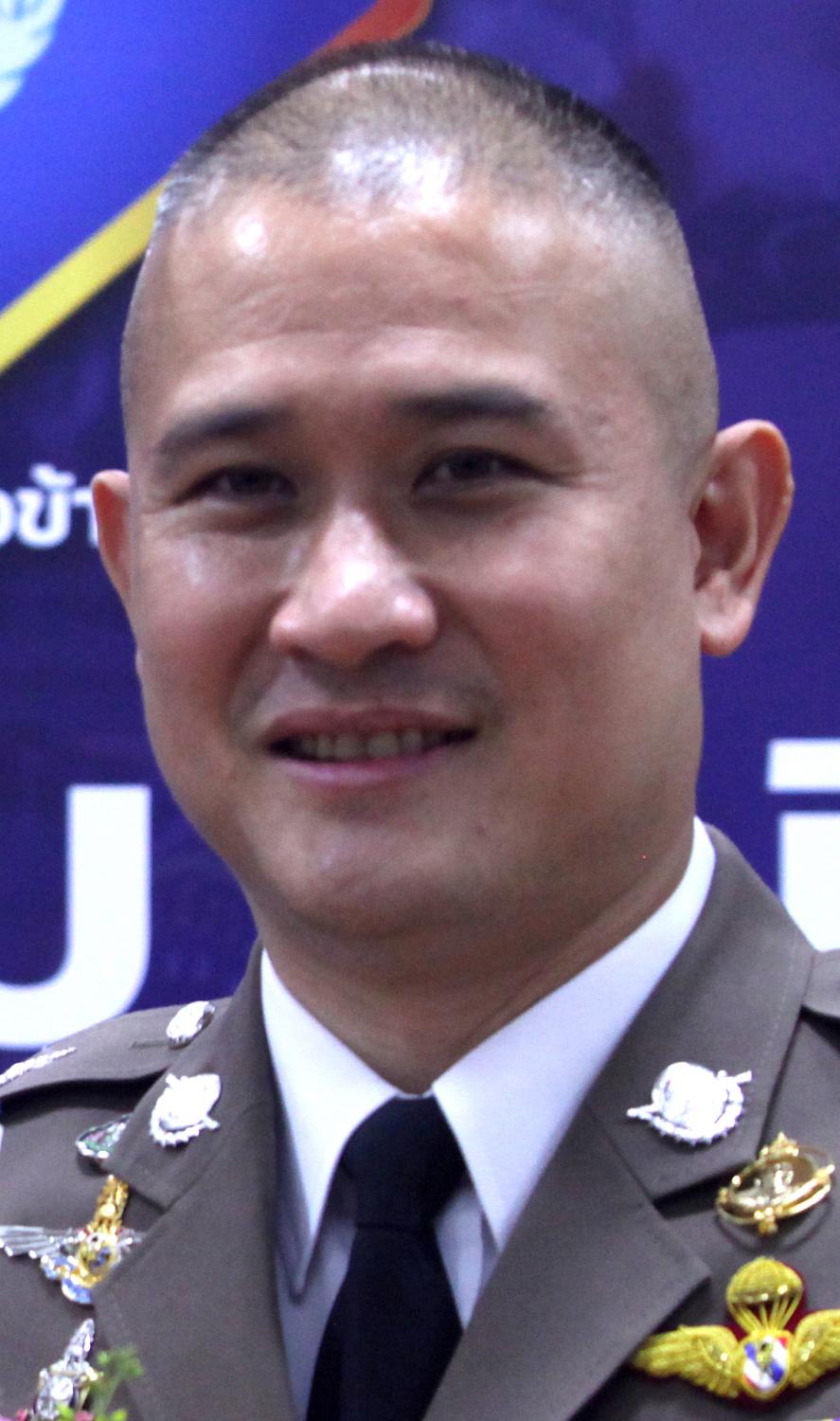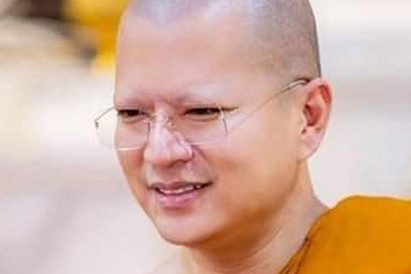
The Central Investigation Bureau (CIB) has assigned the Anti-Corruption Division (ACD) to work with the National Office of Buddhism (NOB) to put an end to financial crimes and sexual misconduct by monks.
Phra Vajirayankosol, founder of Wat Pah Dhammakhiri, a forest monastery in Nakhon Ratchasima province, and Phra Maha Wuthima Thaomor, its abbot, were recently defrocked and stripped of their titles for allegedly stealing about 300 million baht from temple funds and having sexual relations.
Now as laymen, Khom Khonggaew, 39, and Wuthima Thaomor, 38, have been placed under arrest since May 8.
Police said they found 130 million baht of stolen temple funds in Mr Khom’s bank account and 51 million baht in cash at Mr Khom’s sister’s house, Jutatip Pubodeewachorupan. She is also under arrest.
The seizure as well as the police probe into the monks’ alleged misconduct has drawn public attention across the country.
The ACD has joined hands with the NOB to receive complaints regarding corruption in temples after discovering there are considerable amounts in donations at many temples that need to be inspected.
CIB commissioner Pol Lt Gen Jiraphob Puridej said the arrest of Phra Ajarn Khom Apiwaro was significant and could potentially lead to other embezzlement investigations at other temples.
Monks and abbots should regularly account for donation money, or their financial management may be seen as fraudulent by temple executive committees, he said.
Pol Lt Gen Jiraphob said the NOB had asked the police to look into Mr Khom’s affairs as president of Wat Pah Dhammakhiri.
The office believed Mr Khom was involved in the embezzlement of the temple’s donation money, he said.
Mr Khom had been responsible for the temple’s financial management, including overseeing money donated by followers, he said.
He and Mr Wuthima were suspected of misappropriating the temple’s money for personal use, he said.
Pol Lt Gen Jiraphob said Mr Khom had demanded the abbot of Wat Pa Dhammakhiri bring cash to his sister so she could deposit it into their bank account.
“The suspect also confessed he had sex in the temple’s cloister, which is an infringement of monks’ disciplinary rules,” he said, referring to Mr Khom.
“He was willing to be defrocked and turn himself in.”

Jiraphob: NOB needs assistance
On May 9, the CSD arrested six other suspects, comprising a driver and five defrocked monks from Wat Pa Dhammakhiri for their alleged involvement in the 300-million-baht embezzlement scandal.
The five former monks were identified as Boonsong Phanphuwong, 34, Bundit Yoicha, 42, Natthapat Tangjaisanong, 36, Boonluea Pothong, 36, and Thanakrit Yotsurin, 34, and the driver was identified as Boonsak Pattarakosol, 45.
It is believed they hid 76 million baht in cash and other valuables, including gold bars and bullion worth about 100 million baht in total, buried in the compound of the forest temple.
The six men were charged with embezzlement, aiding in embezzlement and receiving stolen goods, reports said.
The Central Criminal Court for Corruption and Misconduct Cases also rejected their bail request, after deeming them a flight risk.
The amount of seized assets and cash is considerable and the suspects have caused immense damage. Evidence and witnesses could be interfered with if they were granted bail, the court said.
“The case is not complicated because the suspects’ intention was obvious. If they had not meant to misappropriate the temple’s donation money, they would not have transferred it to Ms Jutatip’s account.
“The money should have remained in the temple’s accounts as the donors wished,” Pol Lt Gen Jiraphob said.
He said that Pol Maj Gen Jaroonkiat Pankaew, commander of the ACD, has been assigned to work with the NOB to probe temples where monks are suspected to have embezzled donation money.
“The NOB might hold insightful information, but they do not have investigative personnel,” he said. “The CIB will coordinate between the two agencies to conduct the investigation.”
Mr Khom was a graduate of the Wat Bowonniwet School and recipient of the Supreme Patriarch of Thailand’s scholarship, which boosted his popularity among the public.
Mr Khom followed the teachings of the late Luang Ta Maha Bua of Wat Pa Bantad, well-known for his campaigns to raise temple funds.
The suspect studied and practised Buddhist precepts with the sister of Luang Ta Maha Bua when he was in middle and high school.
While studying at Maha Chulalongkorn Raja Vidyalaya University, he visited Pak Chong district in Nakhon Ratchasima to seek a peaceful location for a retreat. Later, he founded Wat Pa Dhammakhiri.
Phra Khom’s popularity rose in 2021 when His Majesty the King bestowed upon him the title Phra Vajirayankosol, a rank for upper-level priests.
However, ties between Wat Pa Dhammakhiri and the royal family can be traced back to 2013 when Her Royal Highness Princess Aditayadornkitikhun presided over a gold-casting ceremony for the temple’s principal Buddha image.
Phra Khom’s preaching drew a large number of devotees to Wat Pa Dhammakhiri, many of whom were high-profile businessmen, high-ranking government officials, politicians and actors.
He received huge sums of money from his followers to build facilities at the temple.
A source from Nakhon Ratchasima said that a decade before temple construction began, the area in Pak Chong district was a national forest reserve, used by local farmers to grow corn, cassava, apples and rubber trees.
The six-rai of land was later given to the temple before another 30-rai plot was donated by followers. Wat Pa Dhammkhiri’s ongoing construction works have attracted many followers.
“Mr Khom’s staff would tell people not to take pictures in the temple,” a source said. “I did not know the reason [behind] the prohibition.”
Jaturong Jongarsa, a Buddhist scholar, commented on the arrest of the high-profile Phra Khom, saying famous temples are likely to face corruption by insiders.
He said the Sangha Supreme Council should decentralise its authority to agencies at provincial, district or even sub-district levels to help tackle such corruption problems.
Mr Jaturong pointed out that many Buddhist temples in Thailand are competing to build bigger Buddha images or buildings to attract more followers, which some regard as the commercialisation of Buddhism.
If the abbots get promoted, more people will devote themselves to the temples and the abbots themselves will receive more religious engagements, further boosting temple funds, he said.
“The Sangha Supreme Council and Department of Religious Affairs should review their policies and be more proactive into their probes of a temple’s [financial] affairs,” he said.

Jaturong: Rivalryfor visitors a factor

